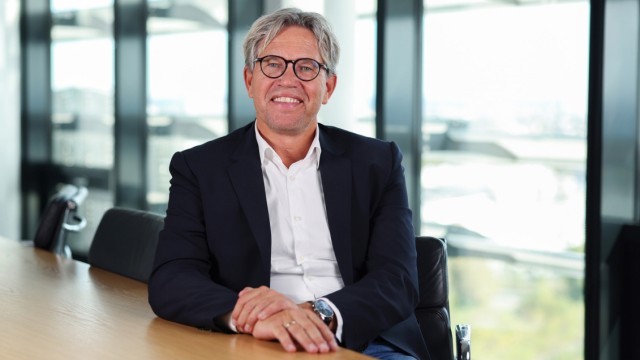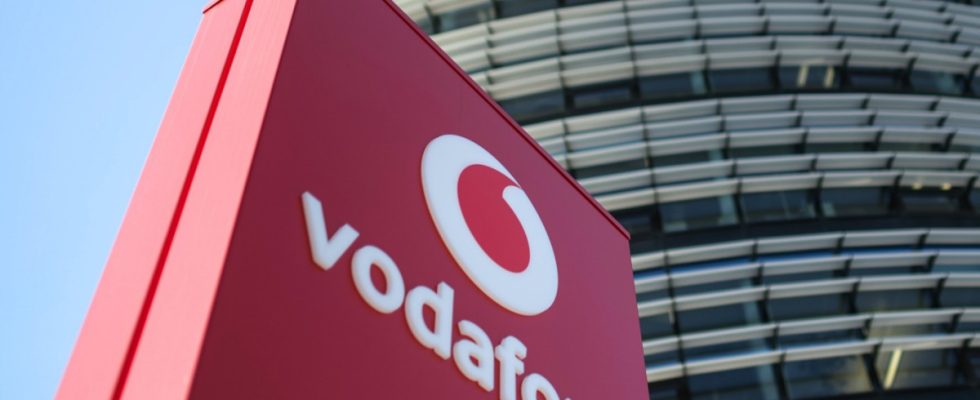Vodafone Germany is replacing its boss after less than two years: The Belgian Philippe Rogge, 54, is leaving the Düsseldorf company at the end of the month and will be replaced by the previous private customer executive Marcel de Groot, 56. This was announced by the subsidiary of the British Vodafone group surprisingly on Friday. The telecommunications company does not give a reason for this. The group says that Rogge has stopped the downward trend at the ailing company, but growth has so far been weak and major successes are a long way off. The new guy should now bring Vodafone back on the offensive.
In the statement, De Groot can be quoted in the most beautiful managerial language saying that he wants to “go on the attack”. The Dutchman has been working at Vodafone since 2008 and has been heading the German consumer business for two years. His goal is to recreate “what has always been within us: a strong, fast, courageous and successful” telecommunications group. Among other things, there should be innovations for customers.
The German subsidiary is Vodafone’s most important division and accounts for almost a third of the group’s sales. It has 15,000 employees, more than 30 million cell phone, ten million Internet and twelve million TV cable customers. When the former Microsoft manager Rogge started in the summer of 2022, the German business was in crisis.
The son of Jacques Rogge, the late President of the International Olympic Committee, succeeded the Austrian Johannes Ametsreiter. He had relied on full-bodied advertising promises, but had not invested enough in network expansion. When many people worked from home and took part in video conferences after the pandemic broke out, Vodafone’s TV cables were overwhelmed with internet traffic.
Philippe Rogge in the Vodafone high-rise in Düsseldorf: He has invested in the network.
(Photo: IMAGO/Funke Photo Services)
The users were angry, Vodafone lost customers, both on landlines and mobile communications. Rogge therefore said goodbye to overly aggressive advertising promises and invested in the Internet. He managed to stop the customer exodus from mobile communications: the number of users is growing again – although more slowly than at rivals Deutsche Telekom or Telefónica Deutschland (O2). Vodafone is losing market share. In the landline network, Rogge passed on higher costs by raising prices. This gives Vodafone increasing sales, but at the same time customers cancel. However, the number of departures has recently fallen.
Vodafone is threatened with further trouble in the TV cable connection business. From July onwards, it will be forbidden for homeowners to provide cable connections for their tenants without asking and to bill the fees as additional costs. Instead, in the future, tenants will have the choice of whether and from which provider they want to order cable television. Vodafone has benefited greatly from the previous regulation – and is now likely to lose some connections.
When it comes to fiber optic expansion, i.e. particularly fast internet lines, Vodafone lags behind rivals such as Telekom. However, one started six months ago Joint company between Vodafone and the broadband provider Alticewhich aims to connect up to seven million households within six years.
1&1 is allowed to use Vodafone’s mobile phone network
In the mobile phone market, Vodafone and rival 1&1 closed in August 2023 an important contract. 1&1 is currently building a fourth cell phone network in Germany, but that will take years. The agreement states that 1&1 customers will be able to use Vodafone’s network until then, including at 5G speeds. 1&1 previously had a similar agreement with Telefónica Deutschland. The fact that United Internet’s subsidiary is now switching to Vodafone caused Telefónica’s share price to plummet.
However, the contract between Vodafone and 1&1 is viewed critically in the industry because it grants network access at very favorable conditions. According to reports, the deal was negotiated by Vodafone management in London and not by Rogge.

The new boss Marcel de Groot has been working for Vodafone since 2008.
(Photo: dpa)
In order to reduce costs, the Belgian also cut jobs. In addition, some managers are said to have turned their backs on Vodafone on their own initiative – not a good sign. The new boss de Groot said he would drive forward the transformation initiated by Rogge – i.e. improvements to the network and service.

